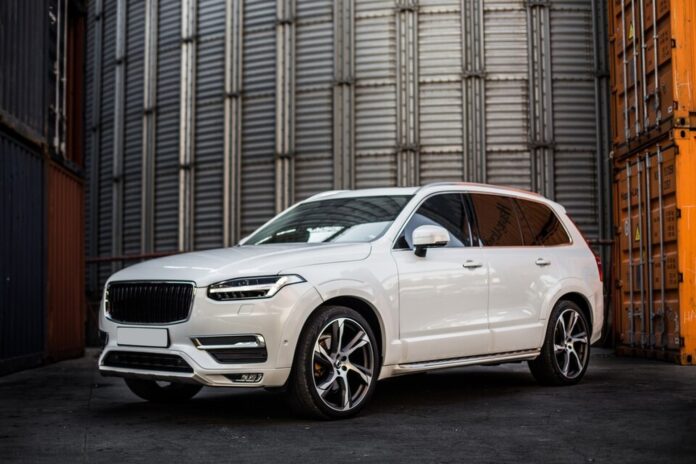Understanding SUV Types
SUV types vary. Understanding the distinctions is crucial. Each class has distinct uses. Subcompact compact midsize and full size vehicles are common. Luxury and crossover SUVs exist. Crossover SUVs blend car and SUV features. Midsize SUVs are spacious and comfortable. A full size SUV has greater power and capacity.
Subcompact SUVs are great city cars. Smaller and easier to park. However space is limited. Compact SUVs are roomier. They suit families. Midsize SUVs are more powerful and spacious. Seating is usually three rows. Full size SUVs tow and perform well. They work for big families and do significant chores.
Luxury SUVs have modern features. This features luxury interiors and cutting edge electronics. Crossovers provide efficiency and comfort. Understanding type features narrow alternatives. It helps you discover the correct fit. Explore and drive various sorts. This assesses needs.
Assessing Your Lifestyle Needs
SUV choice depends on lifestyle. Identifying personal needs is key. Families may need plenty of room for kids and gear. Compact cars may be desired for city driving. Active lives need adaptability. Consider your everyday driving habits. Hobbies, profession and travel frequency matter.
If you carry big parties get a roomy type. This fits numerous travelers easily. Consider a cargo capable model. If off-roading interests you choose robust SUVs. All wheel drive may be needed for certain trips. Small SUVs are convenient for city inhabitants. They quickly negotiate narrow streets and parking areas.
Also assess your everyday commute. Efficient engines may help longer commutes. Fuel economy matters. Families with children may prioritize safety. Think of travel entertainment for youngsters.
Budgeting For Your SUV
Budgeting is crucial before buying an SUV. A complete financial review is required. Set a reasonable budget first. This budget should include gasoline insurance and purchasing. Consider maintenance and repairs.
Finances must be considered. If upfront payment is impossible a vehicle loan may assist. Check loan conditions and rates. Comparing lenders is smart. Understanding the total cost of ownership improves budgeting. Your budget should accommodate monthly payments.
Consider insurance and maintenance costs. Some SUVs have higher premiums. Consider fuel economy when gas prices change. Buy an SUV that combines upfront expenditures with long term savings.
Additionally budget for unforeseen costs. Sometimes life surprises me. Financial cushioning is smart. Consider all your alternatives before choosing. Finding a good SUV takes time and planning. A suitable budget aids decision making.
Fuel Efficiency Considerations
Fuel economy is crucial when buying an SUV. It affects costs and the environment. Understanding fuel efficiency ratings is crucial. These ratings show how far an SUV can go on gas. Overall smaller SUVs get a higher gas economy. The gap is shrinking as technology advances.
Electric and hybrid SUVs are popular. There are alternatives to conventional fuels. These automobiles target eco conscious buyers. Researching models might reveal choices. Also consider realistic driving circumstances. City driving may vary from interstate driving.
Fuel is a key financial item. Efficiency is crucial when costs grow. Frequent drivers should prefer SUVs with greater MPG. This may save a lot over time. Assess driving behaviors. The fuel economy suffers from aggressive driving. More measured driving increases mileage.
Fuel economy improves with regular maintenance. Proper tyre inflation helps. Keeping up with factory service may boost performance. Fuel economy is crucial to purchasing. Finding the best SUV for these demands requires extensive investigation.
Safety Features To Look For
Safety is crucial when choosing an SUV. Modern cars include several safety measures. Knowing what to look for is crucial. ADAS technology aids drivers. Lane departure alerts and adaptive cruise control improve safety.
Check reputable crash test ratings. These ratings show vehicle accident performance. Make sure the SUV has plenty of airbags and collision safety. You should consider stability and traction control.
Rearview cameras are useful. It helps reverse safely in confined situations. Parking sensors also detect impediments. Blind spot monitoring is crucial. It raises alertness while changing lanes.
Check for kid safety features. Make sure youngsters have anchor points while traveling. Consider rear seat entertainment devices. These engage kids without compromising safety.
Buying a safe car is important. Driving becomes more relaxing. Always check safety ratings and reviews before buying.
Performance And Handling
SUV selection depends on performance and handling. Car drivers should feel confident and comfortable. Engine power impacts acceleration and hauling. Engine type must be assessed. SUVs with V6 or V8 engines are powerful.
Equally crucial is managing knowledge. Test drives show how the car handles. Steering and stability should be responsive. These traits matter in various driving scenarios. Consider suspension systems. Ride control and flexibility are improved by proper suspension.
Off road skills may be of interest. A few SUVs excel on rough terrain. Low gearing is common in tough circumstances. Additionally assess the drivetrain. All wheel and front wheel drives are available. Your decision should fit your driving environment.
Consider SUV size. Bigger models may feel heavier. They usually ride smoothly. Smaller SUVs are agile. Choose which suits your driving style. Focusing on performance and handling makes driving enjoyable.
What Is The Best SUV For Families?
The finest family SUV has safety room and comfort. Choose models with third row seats for bigger families. Rear seat entertainment and cargo space are helpful. Families should prioritize safety ratings while buying SUVs. Consider models with motorized liftgates. Individual family requirements will determine the best alternative.
How Can I Improve The Fuel Efficiency Of My SUV?
Improving SUV fuel efficiency requires intelligent decisions. Maintaining tyre pressure is crucial. Clean air filters improve engine efficiency. Switching driving habits may help. Avoid abrupt acceleration and braking. Highway cruise control improves fuel efficiency. Engines operate better with regular maintenance. These activities improve mileage over time.
What Safety Features Should I Prioritize?
Prioritize crash protection features. Search for SUVs with modern braking systems. Lane keeping assist and adaptive cruise control matter. Also look for blind spot monitoring and rearview cameras. Research safety ratings from reliable sources. Drivers might feel safer in a well equipped SUV. Never sacrifice safety while buying a car.
How Much Should I Budget For An SUV?
SUV budgeting includes several factors. Start with the car purchase price. Take into account taxes and fees. Your budget should cover monthly payments. Add insurance and maintenance to your estimates. Know your loan and leasing choices. This helps determine reasonable monthly payments. SUV owners need to spend carefully to stay afloat.



















